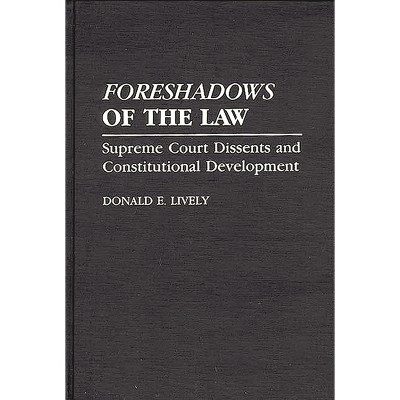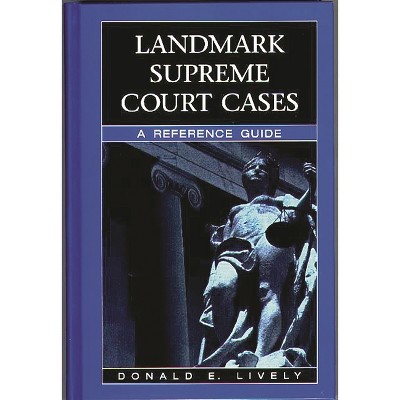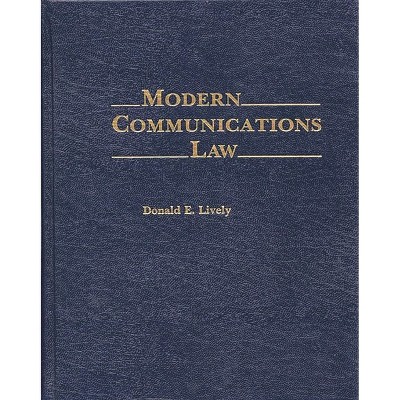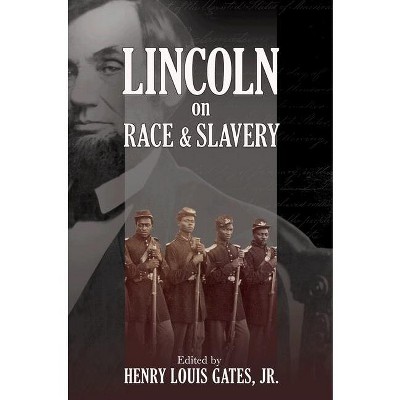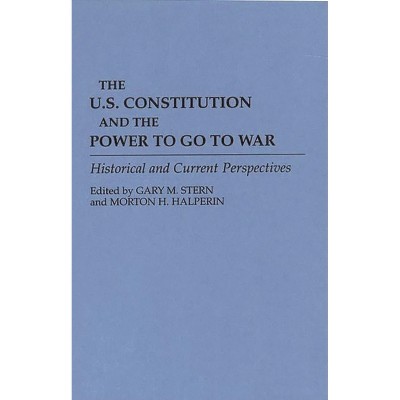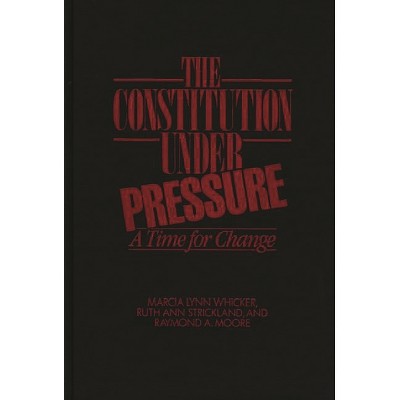Sponsored

Constitution and Race - by Donald E Lively (Hardcover)
In Stock
Sponsored
About this item
Highlights
- Race, as this book demonstrates, has been a factor in the Constitution's framing, ratification, and development.
- About the Author: DONALD E. LIVELY is a Professor of Law at the University of Toledo College of Law.
- 208 Pages
- Freedom + Security / Law Enforcement, Constitutional
Description
About the Book
Race, as this book demonstrates, has been a factor in the Constitution's framing, ratification, and development. Examined specifically and in detail are: * the accommodation of slavery to create a viable republic; * the Union's experience with and eventual undoing by slavery; * reconstruction of the nation pursuant to seminal principles of racial equality; * persisting efforts to limit or defeat constitutional provisions for equality and opportunity; * the desegregation mandate and its devolution; and * modern problems in accounting for a legacy of racial discrimination and disadvantage. The Constitution is the overarching statement of popular will and consent and thus an especially apt prism through which to discern racial truths and the context and values that influence them. Constitutional law affords a particularly useful departure point for acquiring perspective upon moral reality and legal possibility. This book is rich in its analysis of the Supreme Court's response to society's ambiguities, concerns, and conscience in the matters of race. In examining problems and issues which historically have engendered dispute and division, it suggests a potentially consensual basis of ascertaining the Constitution's still unfinished business.
The nation's enduring ambivalence and the price it pays in less than consistent constitutional interpretations on racial questions is both enlightening and disturbing. The questions, of course, are at the heart of a democracy and involve personhood, citizenship, liberty, and equality. The Constitution and Race will be valuable to political scientists, historians, sociologists, lawyers, and students.
Book Synopsis
Race, as this book demonstrates, has been a factor in the Constitution's framing, ratification, and development. Examined specifically and in detail are: * the accommodation of slavery to create a viable republic; * the Union's experience with and eventual undoing by slavery; * reconstruction of the nation pursuant to seminal principles of racial equality; * persisting efforts to limit or defeat constitutional provisions for equality and opportunity; * the desegregation mandate and its devolution; and * modern problems in accounting for a legacy of racial discrimination and disadvantage. The Constitution is the overarching statement of popular will and consent and thus an especially apt prism through which to discern racial truths and the context and values that influence them. Constitutional law affords a particularly useful departure point for acquiring perspective upon moral reality and legal possibility. This book is rich in its analysis of the Supreme Court's response to society's ambiguities, concerns, and conscience in the matters of race. In examining problems and issues which historically have engendered dispute and division, it suggests a potentially consensual basis of ascertaining the Constitution's still unfinished business.
The nation's enduring ambivalence and the price it pays in less than consistent constitutional interpretations on racial questions is both enlightening and disturbing. The questions, of course, are at the heart of a democracy and involve personhood, citizenship, liberty, and equality. The Constitution and Race will be valuable to political scientists, historians, sociologists, lawyers, and students.Review Quotes
"Lively has written an incredibly comprehensive yet concise political and legal history of race and the US Constitution. Ranging through the compromises on race at the 1787 Philadelphia Constitutional Convention, the Missouri Compromise, the infamous Dred Scott and Plessy cases to Brown and the most recent Supreme Court retrenchments on civil rights, Lively analyzes the "history of doctrinal potential and incomplete actualization" which is civil rights in the US. If the late 1960s and early 1970s represented a coming together of Congress and the courts in the name of civil rights, the last 15 years have seen a reversal of fortune as a result of greater public opposition and court-interpreted constitutional doctrines that are cramped and ill-suited to modern forms of discrimination. Throughout, Lively finds that remedies are consistently "implemented in terms that accommodate majoritarian priorities" and have resulted in the bizarre situation that "the harshest standard of [constitutional] review . . . has been reserved primarily for constitutional claims by the dominant racial group." The author proposes a "jurisprudence of original design" which would use a sliding scale of scrutiny such that remedial actions are examined less strictly than those that continue racial inequality and injustice. Extensive endnotes and bibliography make this work a must for libraries of all types."-Choice
?Lively has written an incredibly comprehensive yet concise political and legal history of race and the US Constitution. Ranging through the compromises on race at the 1787 Philadelphia Constitutional Convention, the Missouri Compromise, the infamous Dred Scott and Plessy cases to Brown and the most recent Supreme Court retrenchments on civil rights, Lively analyzes the "history of doctrinal potential and incomplete actualization" which is civil rights in the US. If the late 1960s and early 1970s represented a coming together of Congress and the courts in the name of civil rights, the last 15 years have seen a reversal of fortune as a result of greater public opposition and court-interpreted constitutional doctrines that are cramped and ill-suited to modern forms of discrimination. Throughout, Lively finds that remedies are consistently "implemented in terms that accommodate majoritarian priorities" and have resulted in the bizarre situation that "the harshest standard of [constitutional] review . . . has been reserved primarily for constitutional claims by the dominant racial group." The author proposes a "jurisprudence of original design" which would use a sliding scale of scrutiny such that remedial actions are examined less strictly than those that continue racial inequality and injustice. Extensive endnotes and bibliography make this work a must for libraries of all types.?-Choice
About the Author
DONALD E. LIVELY is a Professor of Law at the University of Toledo College of Law. He is the author of Modern Communications Law (Praeger, 1991) and Essential Principles of Communications Law (Praeger, 1991).Shipping details
Return details
Trending Non-Fiction












